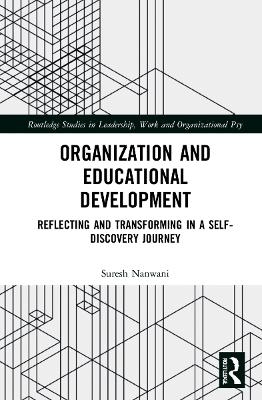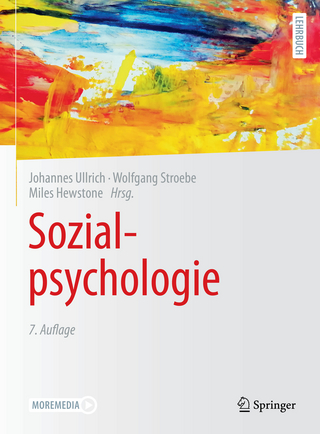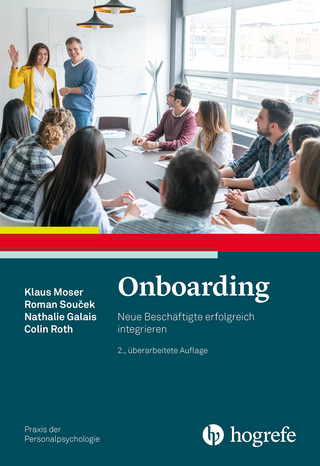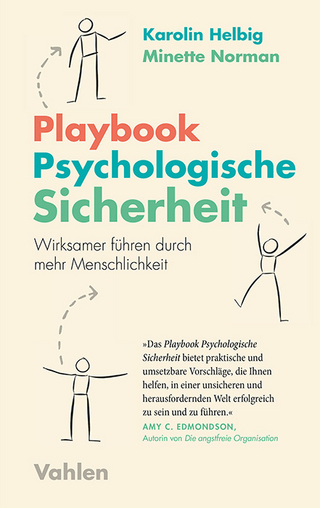
Organization and Education Development
Routledge (Verlag)
978-0-367-76576-7 (ISBN)
Organization and Education Development combines reflective thinking and practice, action research living theory, and organization development to explore the self-discovery of meaning and purpose. It charts a journey undertaken by the author in pursuit of professional development through self-awareness and self-change as a fully integrated person and a better professor.
This book is about an individual's integrative journey of self-discovery. The author’s narrative includes values and organizational development concepts and theories shared with fellow travelers, including supervisors, friends, and students. He shares invaluable insights and examples with the reader, using a model of a six-spoke wheel of final discovery and the MICAI intersection model. These integrative guides provide examples on how to search for what is best in everyday life and what gives us true meaning, encouraging personal reflection and ways of nurturing appreciation for our own lives.
This multidisciplinary book combines western and eastern models and philosophies and draws from organization development, positive psychology, and education development. It will be ideal reading for students, researchers, and academics in the fields of organizational development, organizational psychology, social psychology, and education. It will appeal to any reader interested in learning about self-development.
The Open Access version of this book, available at http://www.taylorfrancis.com, has been made available under a Creative Commons Attribution-Non Commercial-No Derivatives 4.0 license.
Suresh Nanwani is Professor in Practice at Durham University, UK, and Honorary Associate Professor at the Australian National University. He is an author, a writer, and an editor and has more than 30 years of development work experience in international organizations.
Foreword
Preface
Acknowledgments
List of figures
List of tables
Acknowledgments
About the author
List of Abbreviations
1 Introduction: why the journey, the itinerary, and the fellow travelers?
It is never too late to embark on a journey to learn about oneself
Two salient events in my life and their effects on me
Options in mapping out my journey
What is the "best travel agenda"?
Core values for my research journey of discovery
What I need to know and discover on my journey: objectives and questions
My fellow travelers
2 Essential items packed for the journey: OD Theories and concepts
with accompanying studies and literature
Introduction
My travel bag
Reflective practice
Appreciative inquiry and appreciative living
Positive organization scholarship
Charlotte Shelton’s seven quantum skills
Positive psychology, and flow and creativity
Action research living theory
Eastern perspectives: ikigai, yoga, meditation, and tai chi
Mindfulness
Self-awareness
Self: the human being is part of the whole, called the universe
Know yourself
3 All Aboard: my journey travelers who helped me in navigating my route
My ticket for the journey: the research paradigm
Three instruments in my research paradigm
Respondents for the surveys and interviews
Data collection
Journaling
Surveys and interviews
Feedback questions
4 The journey: what I learned from my initial fellow travelers and myself in relation to the values of integrity, professionalism, and spirituality
Introduction
Research question 1: what are the consistent ways in which practicing my three values of
integrity, professionalism, and spirituality make me a fully integrated person?
Summary
Impact of independent readership on my journal entries
Research question 2: through what behavioral lenses do my friends and students
perceive me practicing the three values?
Surveys
Interviews
Summary
5 The journey continues: what I learned from my dditional Dellow Travelers and
Myself on my top three discoveries and on my final model
Introduction
Research question 3: what are the top three discoveries I gained from my practice of the
three values?
Summary
Research question 4: what model can I craft toward becoming (a) a fully integrated
person and (b) a better professor?
Summary
Four illustrative vignettes
Vignette one (on professionalism)
Brief episode
Extrapolation
Vignette two (on integrity)
Brief episode
Extrapolation
Vignette three (on spirituality)
Brief episode
Extrapolation
Vignette four (on all three values of integrity, professionalism, and spirituality)
Brief episode
Extrapolation
6 Completing the journey: the Final OD model, the lessons learned, the MICAI
intersection model, summaries of reflective practices, and does the journey really end?
A fulfilling journey and the six-spoked wheel model
General conclusions
Specific conclusions
Core values
A clear process for the route taken
The road is never neatly defined
A three-legged stool of values
There is always room for improvement in teaching and in living life
I am part of the cosmos and I contribute to the dynamic whole
The MICAI intersection model
Instances in applying the MICAI intersection model
Summaries of reflective practices for a reader to use
Scenario 1
Scenario 2
Several specific examples of simple daily reflective practices
Example 1: morning — the sun rises, we rise, we awaken
Example 2: a flock of birds flying in the sky
Example 3: eating slowly and tasting the gently-stirred oatmeal porridge
you cooked
A poem to sum up my journey and salient pointers I learned
Concluding notes and recommendations
Key ingredients in embarking on a journey
Incorporation of other concepts and theories
Always revisit your journey
7 Postscript from my journey: Covid-19, the new normal, and ways of rediscovering oneself
Introduction
My final model in relation to Covid-19
Impact of Covid-19 on OD models and new values in OD
Covid-19 as a crisis of opportunity
Mental maps: conventional and new normal
Unleashing the best in us
Shakespeare and the black plague: creativity sparked in dramatic plays
Chekhov in isolation: creativity released in the wilderness
Wordsworth as a solitary person: creativity unlocked through poetry
The miracle of Robben Island: creativity uncaged through imprisonment
and confinement
An exercise in reinterpreting lines from As You Like It, 1599: as rewritten in 2020, the
new normal
Epilogue
Appendix 1: selected journal entries as samples showing self-reflection
Appendix 2: selections from the data collection table reporting interviews with the
respondents
Glossary
Index
| Erscheinungsdatum | 18.08.2021 |
|---|---|
| Reihe/Serie | Routledge Studies in Leadership, Work and Organizational Psychology |
| Zusatzinfo | 23 Tables, black and white; 17 Line drawings, black and white; 17 Illustrations, black and white |
| Verlagsort | London |
| Sprache | englisch |
| Maße | 156 x 234 mm |
| Gewicht | 390 g |
| Themenwelt | Geisteswissenschaften ► Psychologie ► Arbeits- und Organisationspsychologie |
| Wirtschaft ► Betriebswirtschaft / Management ► Planung / Organisation | |
| ISBN-10 | 0-367-76576-4 / 0367765764 |
| ISBN-13 | 978-0-367-76576-7 / 9780367765767 |
| Zustand | Neuware |
| Informationen gemäß Produktsicherheitsverordnung (GPSR) | |
| Haben Sie eine Frage zum Produkt? |
aus dem Bereich


